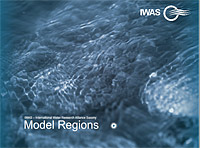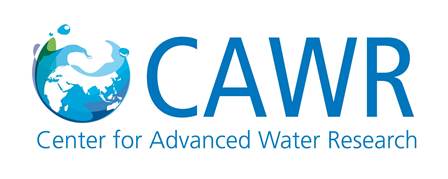Working Group: IWRM structures (Governance)
Tasks
The work in IWAS I was devoted to the analysis of the governance structures for water infrastructure management in Ukraine. The system that is highly fragmented and incoherent was compared with current systems applied in the European Union and deficits were identified.
The aim of IWAS II is the analysis of requirements for the implementation of an IWRM concept in the Western Bug river catchment. Therefore, conflicts over different uses as well as the institutional structures in the catchment will be presented in detail. Actors within the system are analysed with respect to their interests, preferences and their room for manoeuvre.
In a cross-sectional study gained knowledge from the Mongolian and Ukrainian experience will be compared to come to more universally applicable propositions for implementation obstacles in post socialist countries.
Methods and approaches
The legal and institutional framework was analysed based on applicable law and its history as well as expert interviews and a literature analysis. This approach offered insights in incentives structures for the implementation of more sustainable measures.
For the analysis theoretical approaches of New Institutional Economics were applied such as the transaction cost approach, principal agent and property rights theory. Political processes are described by theoretical strands of public choice theory.
The focus in IWAS II will be on the analysis of technical options considering the conflict over different uses. Alternative methods for the assessment of these options are cost-utility analysis, cost-effectiveness analysis, comparing flexibility of alternative systems and multi criteria analysis.
A legal analysis is conducted with respect to the content and scope of international agreements concerning water quality standards for the Western Bug River (UNECE convention, EUWFD, Helcom).
First results
The transition process in Ukraine is not yet concluded. The interrupted decentralization process with its unclear distribution of competencies and deficits in the assignment of budget competencies hinder the implementation of a river basin management concept (Hagemann 2010), and the development of the drinking water and sanitation sector (Unnerstall and Hagemann 2011).
The theoretical approaches of new institutional economics did not provide the expected results because they were not able to sufficiently describe the processes in Ukraine. From this it follows that additional approaches from other disciplines such as Sociology and Political Sciences need to be considered.
Recommendations for a more efficient arrangement are developed based on insights from institutional economics and administrative science (Unnerstall and Hagemann 2011).
Contact
Nina Hagemann
Helmholtz Centre for Environmental Research - UFZ
Department of Economics
Permoserstrasse 15
04318 Leipzig
![]()
![]() nina.hagemann@ufz.de
nina.hagemann@ufz.de
Dr. Moritz Reese
Helmholtz Centre for Environmental Research – UFZ
Department of Environmental and Planning Law
Permoserstrasse 15
04318 Leipzig
![]()
![]() moritz.reese@ufz.de
moritz.reese@ufz.de
Material
JOURNAL AND BOOK PUBLICATIONS:
UNNERSTALL, H. und HAGEMANN, N. 2011: Analysing the shortcomings of the Ukrainian urban waste water sector – Institution options for modernisation. In: THEESFELD, I. undnd PIRSCHER, F. (Hrsg.), Perspectives on Institutional Change – Water Management in Europe. Studies on the Agricultural and Food Sector in Central and Eastern Europe 58: 35-54.
Leidel, M., Niemann, S. und Hagemann, N. 2010. Capacity Development for Integrated Water Resources Management (IWRM) in a transition country – Improving River Basin Management in the Western Bug Basin, Ukraine. In: Streusloff, H. (Hrsg.), Integrated Water Resources Management (IWRM) Karlsruhe 2010. Conference Proceedings. Karlsruhe, KIT Scientific Publishing: 382 – 388. ISBN 978-3-86644-545-1
CONFERENCE PRESENTATIONS
HAGEMANN, N.: Potential and limitations of a polycentric governance approach for water infrastructure management in Ukraine. Paper presented at the “Scaling and Governance Conference 2010. Towards a New Knowledge for Scale Sensitive Governance of Complex Systems”. November 2010, Wageningen, Niederlande,
HAGEMANN, N.: Institutional obstacles for the implementation of a River Basin Management Concept in Western Ukraine. Conference of the International Society for Ecological Economics (ISEE), 22.-25.08.2010, Oldenburg
HAGEMANN, N., und UNNERSTALL, H.: Institutional shortcomings of wastewater management in Ukraine “5th Dubrovnik Conference on Sustainable Development of Energy, Water and Environment Systems”, 29.09.-03.10.2009, Dubrovnik, Kroatien.
Poster
UNNERSTALL, H. und HAGEMANN, N.: "Institutional Prerequisites for the Modernising the Waste Water Sectors in transition countries – Is there a silver bullet for the Ukraine?" IWRM Karlsruhe, 24.-25.11.2010, Karlsruhe.




.png)
.png)
